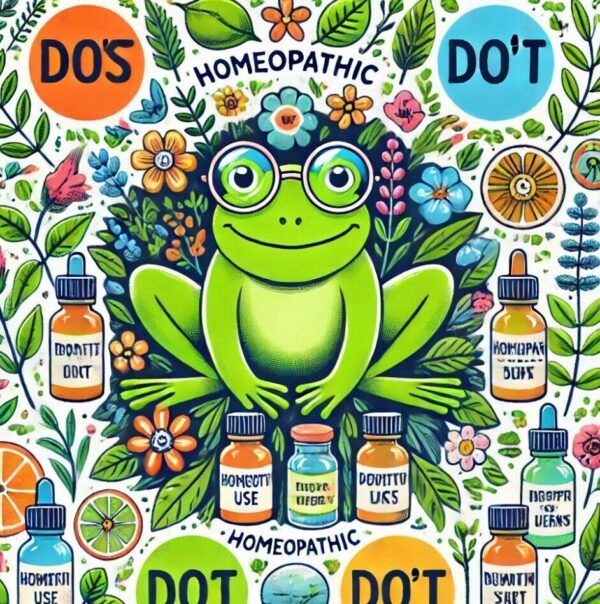

Homeopathy is a type of alternative medicine that uses small amounts of natural substances to stimulate the body’s ability to heal itself. Unlike conventional medicine that often targets symptoms directly, homeopathy is about triggering the body’s natural defenses. Developed over 200 years ago by Samuel Hahnemann, this approach is grounded in the belief that the body can heal from within when given the right stimulus.
At its core, homeopathy operates on the ‘like cures like’ principle. This means that a substance that causes symptoms in a healthy person can, in minute doses, treat similar symptoms in someone who’s unwell. It’s about the subtle nudge rather than the heavy push, aiming for a balance that encourages overall well-being.
Understanding homeopathy can be pretty straightforward if you think of it as using nature’s own toolkit. The remedies are derived from plants, minerals, and sometimes animal products. These substances go through a process of dilution and shaking called ‘potentization,’ which practitioners believe makes the substance more effective while minimizing side effects.
Beginners might find homeopathy appealing for everyday ailments like headaches, colds, or minor skin issues. The notion is that these remedies provide gentle but effective support without the harsh chemicals found in some traditional medicines. That said, it’s essential to align expectations with reality—homeopathic treatments might not always provide the quick fix that some stronger pharmaceutical options do.
Homeopathy’s history tracks back to 18th-century Germany, where its principles were seen as a revolutionary departure from bloodletting and harsh medical practices of the time. It’s spread globally, finding a niche among those seeking a softer, holistic approach to health. It’s about treating the person as a whole rather than just attacking isolated symptoms.
Daily Homeopathic Use: Myths and Facts

Taking homeopathic remedies daily can stir up some confusion, but let’s clear the air. You might wonder if it’s safe to use these remedies every day. Here’s the scoop: homeopathy is generally seen as safe for regular use, mainly when dealing with long-term conditions. However, not every ailment or person needs this consistent rhythm.
Firstly, homeopathic remedies are often tailored to the individual, their distinctive symptoms, and their body’s response to treatment. The beauty of this customization means the advice you’ll get might vary from one person to another. If you’re considering a daily regimen, consulting with a qualified homeopath ensures that it’s the right move for your situation.
Regular use sometimes shines brightest for chronic issues where the goal is gentle, progressive improvement rather than an overnight change. But remember, the principle behind homeopathy emphasizes minimal use, only as needed to nudge your body back into balance. It’s about timing and dosage, respecting the body’s rhythms and needs.
Common myths might suggest that taking homeopathic remedies often could lead to dependency or mask symptoms. Yet, these concerns don’t quite hold water. Unlike conventional medicines, which can sometimes lead to tolerance, homeopathic treatments don’t carry this risk.
To get the best results, stick to recommended guidelines and stay in touch with your health professional. A check-in now and then helps ensure that the remedies are still working as expected and to adjust wherever necessary. Think of it as nurturing your journey to health, always in a dialogue with your body and your practitioner.
Holistic vs. Homeopathic: Finding the Balance

Holistic health is a broad term often thrown around in wellness circles, but it encompasses a wide array of approaches to healing. It includes everything from diet and exercise to mindfulness and herbal remedies. Holistic health looks at a person as a whole—mind, body, and spirit—rather than zooming in only on individual ailments.
Homeopathy slips into this holistic view but operates with its distinct set of principles. While both are centered on treating the ‘whole’ person, homeopathy stands out for its specific methodology of using highly diluted substances to trigger an individual’s healing processes. It’s only one piece in the large jigsaw puzzle of holistic health practices.
People sometimes get tangled up thinking holistic practice is synonymous with homeopathy, yet it’s a broader umbrella. Holistic methods might include practices like acupuncture,or accupressure, yoga, or even nutritional counseling—none of which uses the homeopathic principle of ‘like cures like’. Each has a unique role in supporting health and well-being.
Integrating homeopathy into a holistic lifestyle doesn’t mean you have to give up other treatments or therapies. It can work alongside conventional medicine or different alternative therapies, providing a complementary approach to addressing your needs.
Ultimately, the goal is cultivating balance in life. Whether you’re using homeopathic remedies or engaging in holistic practices, it’s about nourishing your body and mind in a way that fits your life personally. Exploring these methods can be quite an engaging journey to a healthier, more balanced lifestyle.
Selecting the Right Homeopathic Remedy: A Beginner’s Guide

Choosing the right homeopathic remedy may seem like navigating a maze, but it doesn’t have to be overwhelming. Start by focusing on your specific symptoms and how they manifest. Homeopathy thrives on the details, so take note of what makes your symptoms better or worse—whether it’s time of day, weather, or even emotional states.
Consider starting with common remedies known for treating everyday issues. For instance, Arnica is often used for physical trauma and bruising, while Belladonna might be suited for sudden fevers with redness and heat. These well-known remedies for specific symptoms can be good starting points if you’re new to homeopathy.
When in doubt, consult with a trained homeopath. They can provide insights you might not think of and ensure the remedy aligns with your broader health profile. Professional guidance helps avoid the trial-and-error approach, saving time and ensuring more efficient relief.
It’s also wise to keep a journal of your symptoms and responses to remedies. By tracking changes, you can identify what’s working and make necessary adjustments. This practice helps create a clear picture of your health journey and fine-tunes your approach over time.
Above all, trust your body’s signals. Sometimes remedies need adjusting based on subtle changes in how you feel. Trusting those instincts can contribute significantly to selecting the most effective remedy, leading you closer to the well-being you’re aiming for.
Dos and Don’t s of Homeopathic Use

Navigating the world of homeopathy requires a few key precautions to ensure remedies are as effective as possible. First off, it’s crucial to handle homeopathic medicines properly. They are usually sensitive to strong odors and should be stored in a cool, dark place away from anything with a strong fragrance, like essential oils or perfumes.
When taking a homeopathic remedy, always follow the guidance provided, especially the dosage and frequency. This approach is essential to make sure you’re not overwhelming or under-dosing your system. Homeopathy is about balance, not just the frequency of supplementation.
Avoid consuming food and drinks, particularly those with strong tastes, immediately before or after taking your remedy. Coffee, mint, and even some spices can interfere with the absorption and effectiveness of the treatment. A wait of about thirty minutes to an hour before and after consumption is recommended.
One thing to dodge is mixing homeopathic treatments with other medications without professional advice. While homeopathy is generally safe, interactions could potentially alter the efficacy of either the remedy or the medicines.
Lastly, pay attention to your body’s responses. If something feels off or not yielding expected results, it might be time to reassess with your homeopathic practitioner. Listening to your body goes a long way in ensuring health and wellness. Always keep an open dialogue with your health advisors to stay on track.
